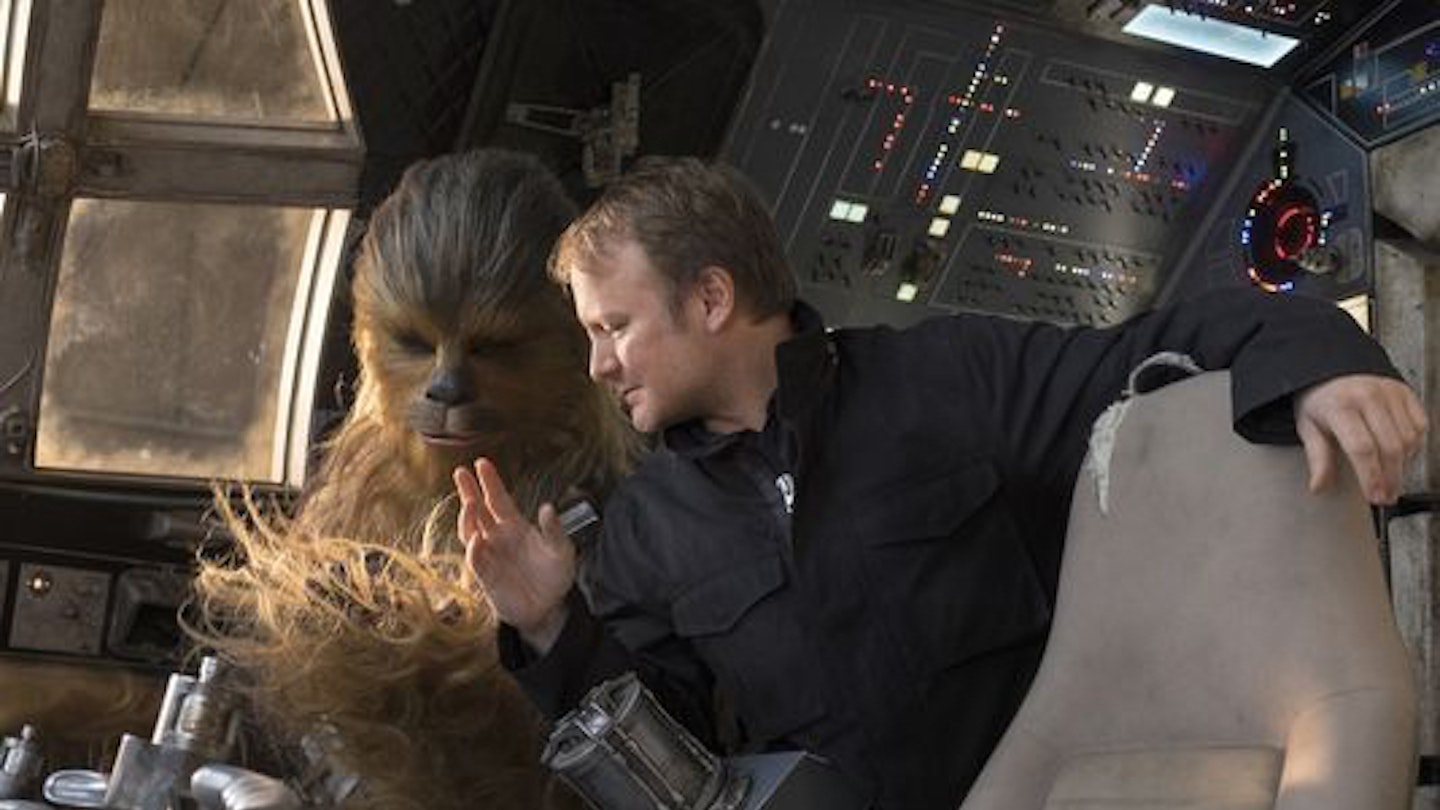Star Wars: The Last Jedi has been spurring conversation and debate ever since it came out. We sat down with writer/director Rian Johnson for the latest Empire Podcast Spoiler Special, and revealed plenty. Here are 10 secrets from the conversation.
MAJOR SPOILERS from the start.
1. Luke and Kylo's views are built to mirror each other
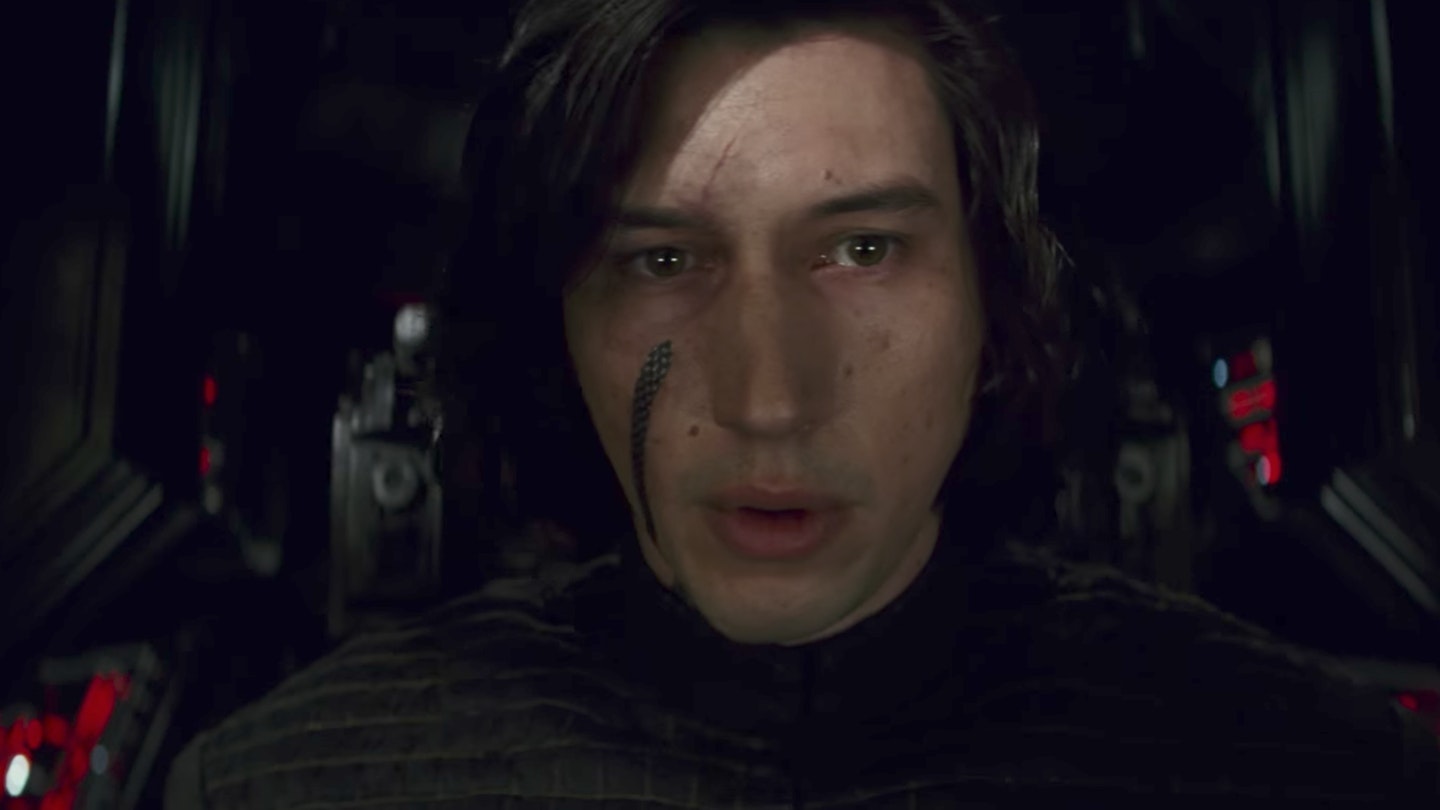
With Kylo Ren ready to burn everything down and Luke Skywalker choosing to hide away, there was a lot to explore in their different philosophies.
"From the very start, there is the theme of 'let the past die,' expressed through Kylo very strongly. And to some extent, for much of the movie by Luke – it's one of the interesting things of the movie that these two opposite poles have come to the same conclusion," explains the director. "I always think if you're cutting off the past, you're fooling yourself, just burying it in a place where it'll come back. The only way forward is where Rey actually lands, which is to build on the past, not necessarily to wallow in it in the way Luke is doing. Yoda's lesson to him, with the Jedi books, not to wallow in it or wallow in its destruction, but to take what's best from it, build on it and appreciate it and move forward."
2. Luke's death had to have resonance
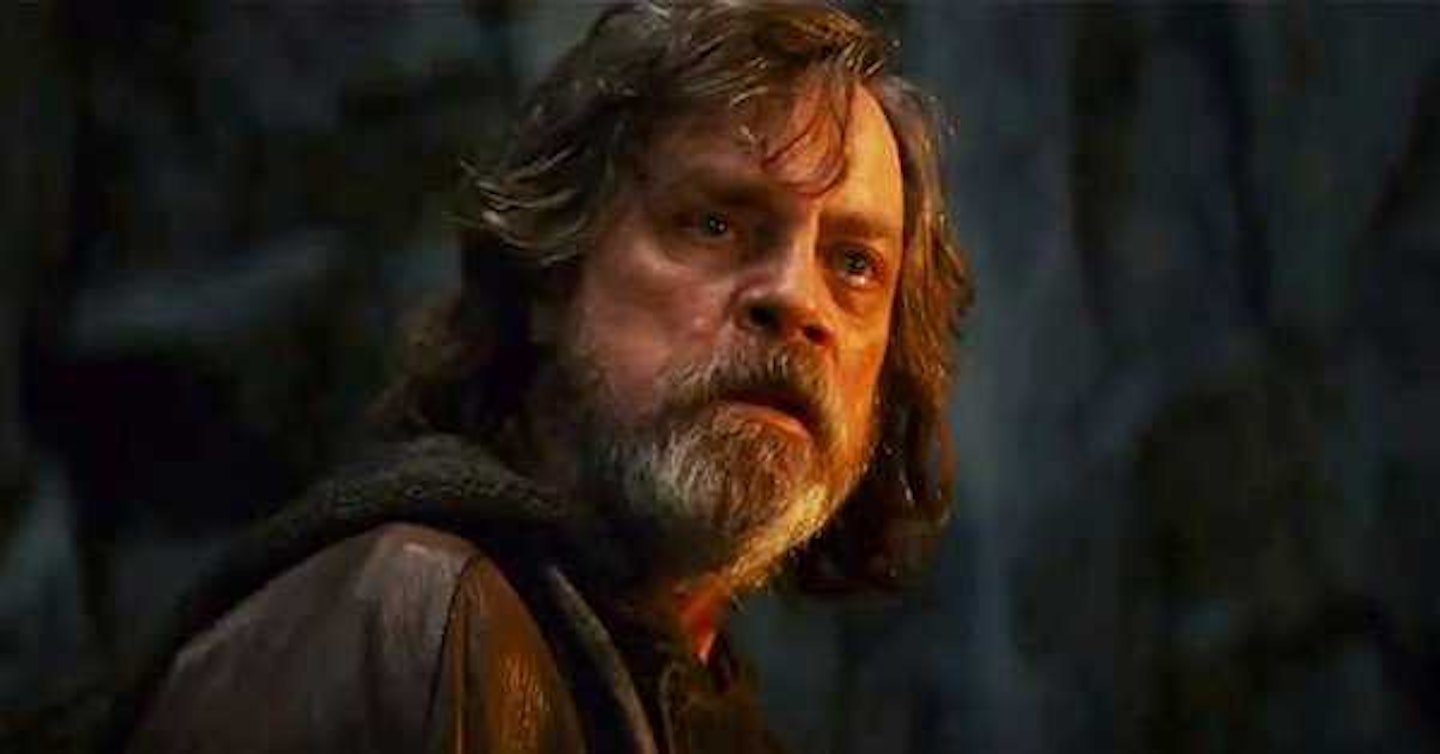
Luke's end is very different from that of Han Solo in The Force Awakens, but no less impactful. There's a reason for that, and his journey in the film leads to that point.
"He's taken himself out of the fight, he's sitting on that island in exile. I know the Luke I grew up with is not a coward, he's not sitting out there hiding, so I had to come up with a reason he was there that was active and positive, and something I could genuinely believe I could think in his shoes," says Johnson. "And the thing that came to me that seemed to make sense to me is this notion that he seems this hero worship of him and of the Jedi that is detrimental to the galaxy. The universe has put its faith in its false god of the Jedi and they need to forget the religion so they can get back to god, that light can rise from a worthier source. And because he's the last Jedi and a symbol of that, it then becomes this self-sacrifice he has to do to take himself out of it when he knows his friends are dying, when he knows the thing he'd like to do is get back in the fight. He's taken the weight of the world on his shoulders by taking himself out of the equation so that the Jedi can die out. The end of the movie is him embracing the part of the past that the present needs, which right now is the legend of Luke Skywalker, they need something to believe in, they need that action figure of Luke Skywalker to grab on to, that inspiration to stare up at the stars and believe that you can be a hero."
"I wanted Luke's death to be peaceful, to be on his terms I wanted it to be a victory. I wanted it to be that he's done this huge grand act that has restored the spark of hope to the galaxy. I'm hesitant to put into words what he does in the end, but it is completed."
3. The stable boy ending almost wasn't the last scene
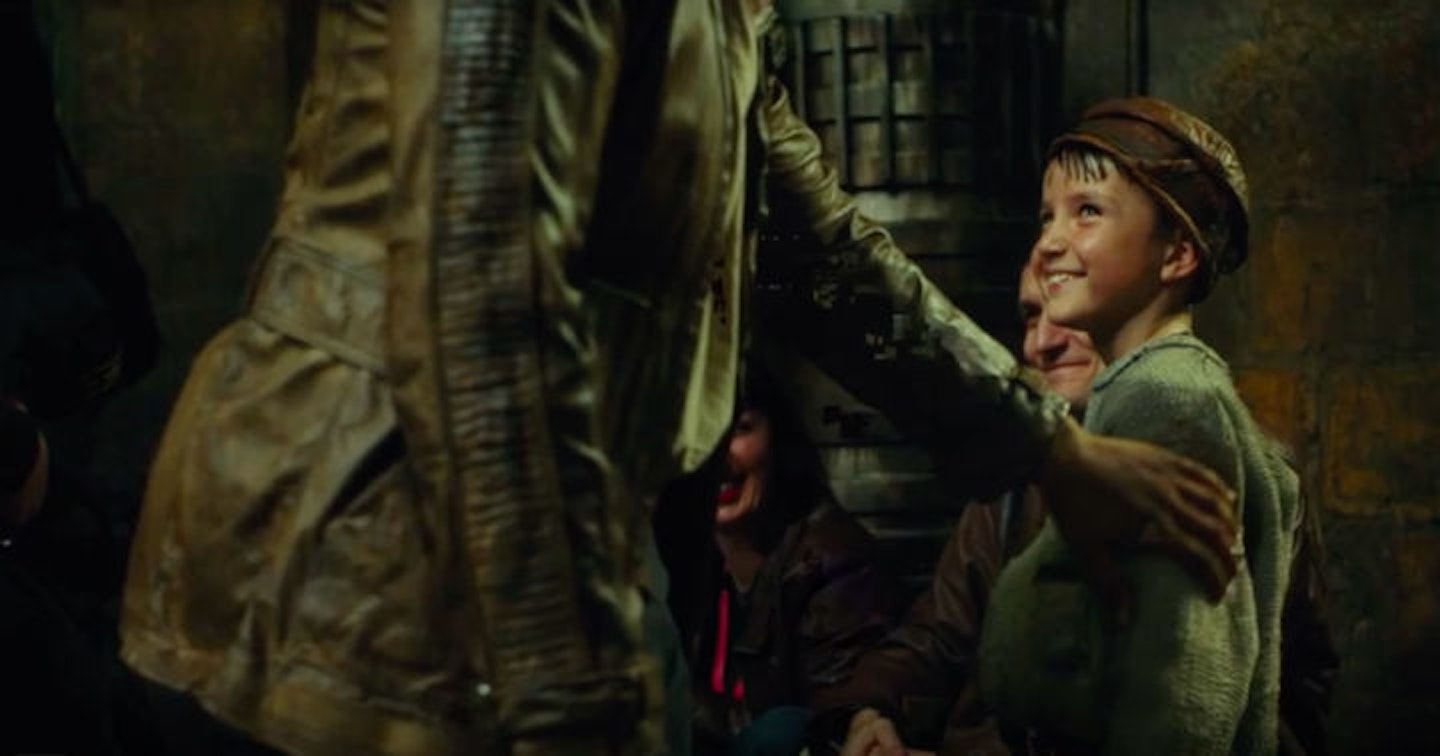
While Star Wars films often end focused on our heroes in victory or defeat, Johnson chose instead to focus on the young workers of Canto Bight. Inspired by the story of Luke, Rey and co, they find their own path to heroism. So why the switch?
"That was something I really stuck to, and believe me, we went back and forth in the editing room. In the script, when I wrote that scene in the Falcon, I wrote the words, 'this seems like the perfect image to end on,'" Johnson reveals. "To me, it was really important to have that final scene, because it turns what Luke did from an act that saves 20 people into an act that inspires the galaxy. The notion that what we're setting up here is something big in the next chapter. And when Leia says, 'we have everything we need,' she's talking about everyone on the Falcon, but also about what we see next, which is we now have a galaxy that has seen this beacon of hope and is getting inspired to fight the good fight."
4. Kylo and Rey's connection is complicated for a reason
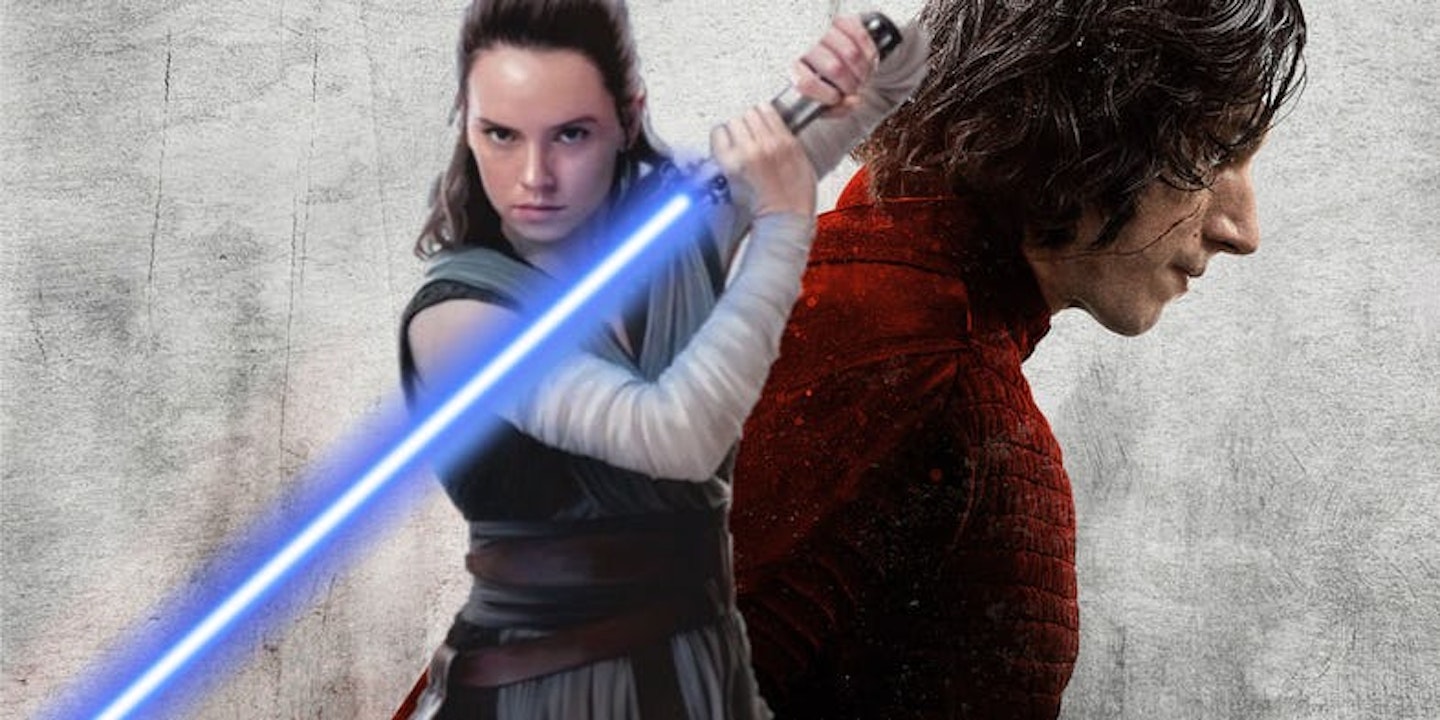
The complicated relationship between Kylo Ren and Rey is one of the biggest strands of the film, for good reason. How does Johnson fall on how it affects them both?
"To write these characters, I always have to get inside their heads. I tend to step inside and have the most generous reading of any character's motivation possible," says Johnson. "I'll say this – the moment when Kylo makes his appeal for her to join him, and Adam captured it so well in his little please, it was important to me that it wasn't a chess game, it wasn't just a manipulation. It's unhealthy, and there's much that is awful about the way that he is manipulative. From his point of view, it's a very naked, open, emotional appeal. It's his version of, 'I'm just a girl standing in front of a guy'... The same way as when he tells his version of the story with Luke, that's his experience of his moment.
5. Rey's parentage was a clear choice
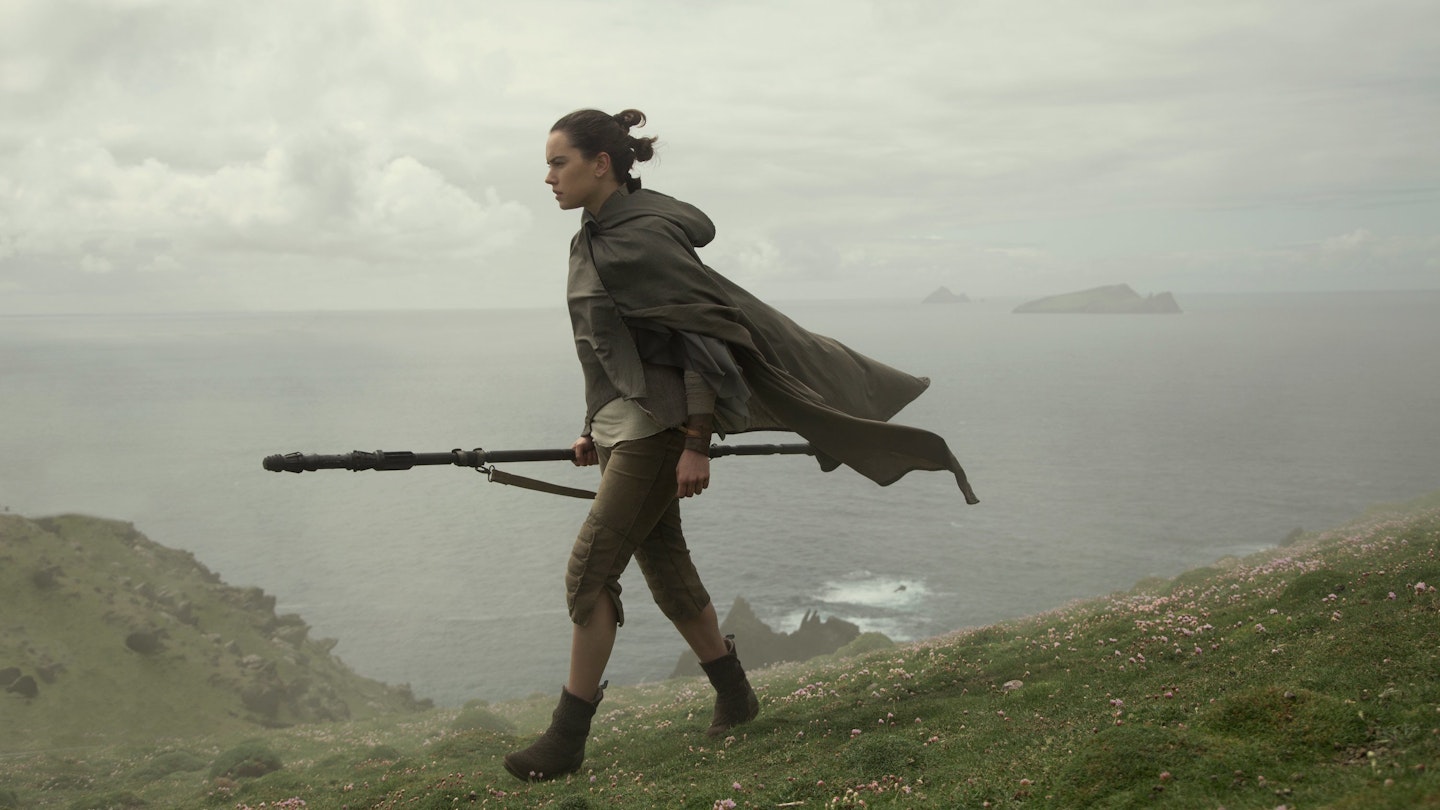
While there had been many theories about who Rey's parents might be – could she be a Skywalker? Related to Snoke - Johnson chose to go a very different route, choosing to label them, in Kylo Ren's words, "nobodies".
Says the director, "I went through all the possibilities of who her parents could be. I made a list, with the upsides and downsides. There were two things about this option that made it feel right to me. Firstly. I like the idea that we're breaking out from the notion that the force is this genetic thing that you have to be tied to somebody to have. It's the 'anybody can be president' idea. Which I liked introducing. The foremost thing was just dramatically, storytelling-wise. The way I like to put it is, in The Empire Strikes Back, the big revelation is 'I am your father.' It's a big surprise, but I think the reason it lands is not because of that, but because it's the hardest possible thing that Luke, and hence the audience, could hear at that moment. You've had a bad guy that you can hate, that you can project your shadow on to cleanly, he's evil. It's simple. With that one line, suddenly that easy answer gets taken away from you, and he's something our protagonist has a relationship to and has to think in more complex terms, in terms of layers of redemption. For me, if Rey had gotten the answer that she's related to so-and-so, had learned her place in the story, that would be the easiest thing she can here. The hardest thing to hear is, 'nope, this not going to define you.' And in fact, Kylo is going to use this to try and undercut your confidence so you'll feel you have to lean on him for your identity. And you're going to have to make the choice to find your own identity in this story."
6. Carrie Fisher's death did not affect the story
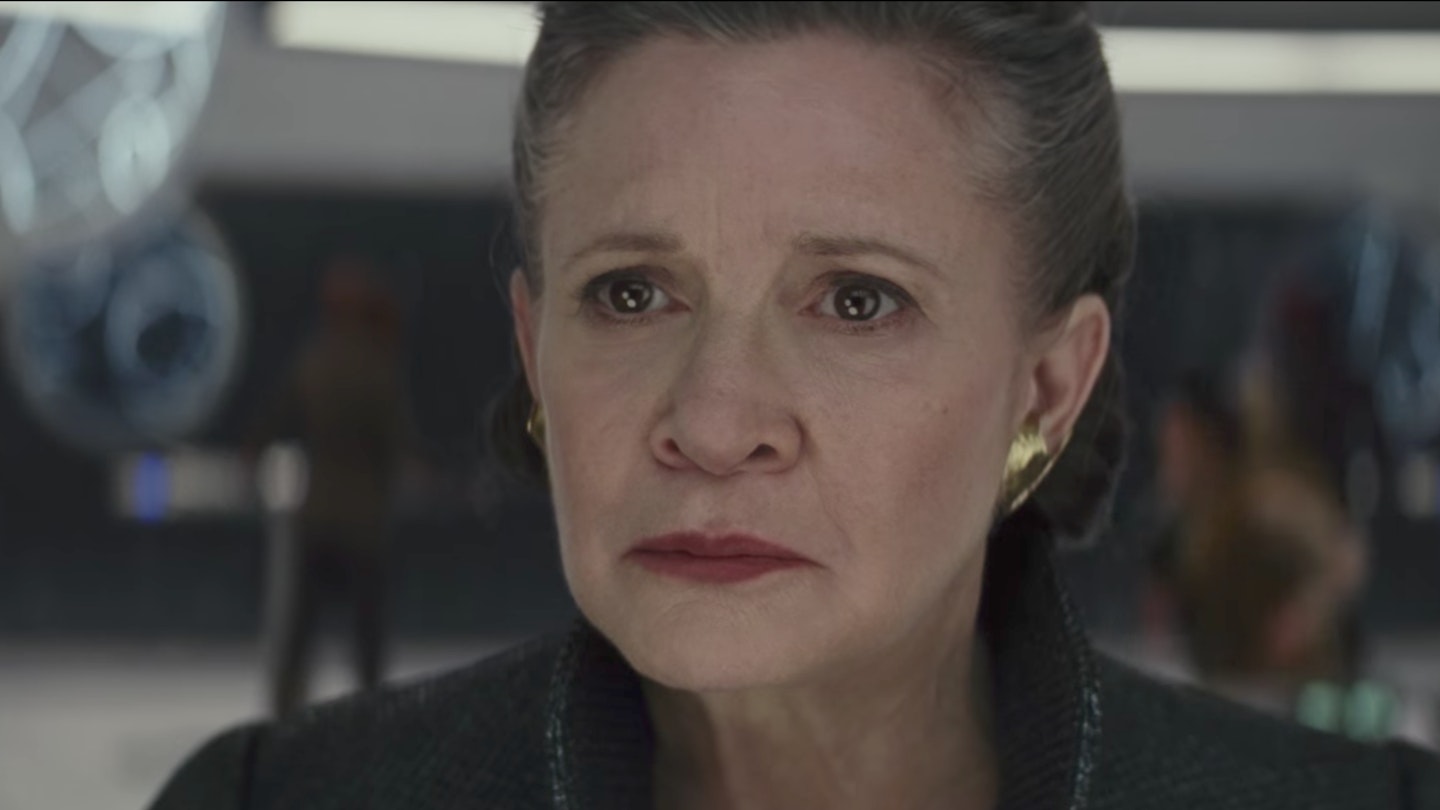
Fisher tragically died in between the film's shoot and its release, and, at time of writing, there are no plans to have her in the next movie, whether through unused material or digital trickery. Johnson faced some storytelling challenges around that. Did anything change to reflect the real-world events?
"Nothing changed," confirms Johnson. "We discussed it briefly, and I spoke with Kathy (Kennedy, producer and Lucasfilm boss) when we came back after New Year's. We watched through her scenes and there was briefly talk of, 'god, do we adjust something so that we give her some kind of end in this movie?' I felt strongly that we shouldn't do that for a couple of reasons. We have a beautiful, complete performance from her, and that final moment is so powerful for her, and for us saying goodbye to her. And also, I can't imagine anything that we would be able to manufacture without having Carrie that would've been emotionally satisfying. I definitely I have no idea what would maintain that scene between her and Luke, or the scene in the Falcon. So we just decided to let it lie. I know JJ's going to come up with a way to resolve her in the next movie.
7. Holdo's hyperspace attack reaches back to a line from the past
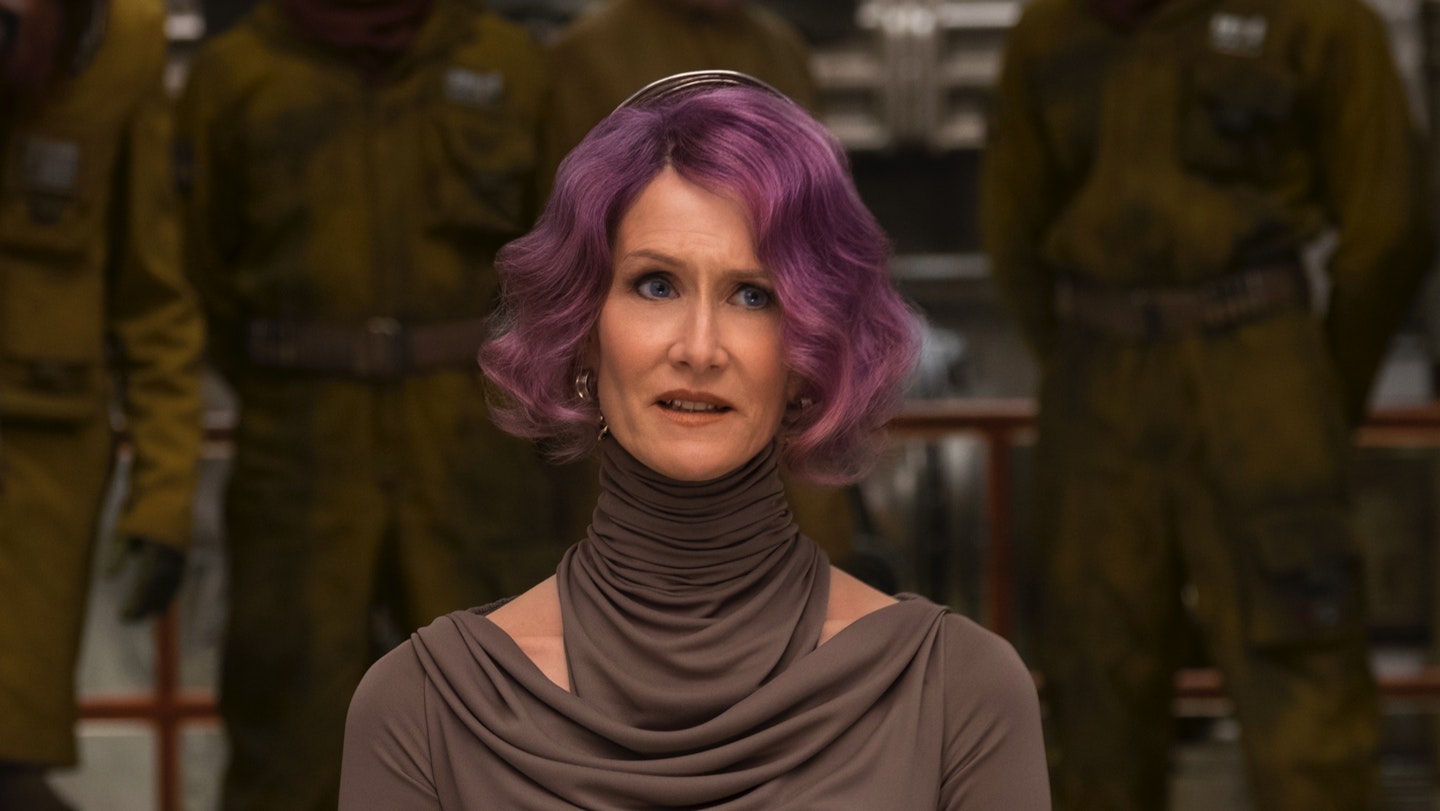
Laura Dern's Vice Admiral Holdo stages an audacious, devastating attack on the First Order's ships in a massively dramatic moment from the movie. It was important for Johnson to get in.
"I'm sure that a lot of fans had thought ever since Han was talking about if you don't get the calculations right you could go through a star...," Johnson explains. "I always wanted to see what that would look like, and at some point, one of the guys at ILM hit upon that exposure idea of everything going silent. We were struggling with how do we make this visually impressive and when we hit on that, we loved it.
8. Snoke's unceremonious death allowed for a new paradigm

Johnson has previously told Empire that he's not particularly interested in where Snoke comes from, and he dispatches the villain in The Last Jedi. What was behind that thinking?
"I like Snoke as a character as Andy (Serkis) plays him," the director clarifies. "He's delicious, evil and fun. But Kylo to me is where the interesting stuff is. And the notion of clearing the deck of the Vader/Emperor dynamic so that all bets are off in terms of how the villainy is going to play out, that to me seemed like a much more interesting thing. And it just seemed natural. If he had stopped in the middle of a scene and given a monologue, it would've stopped it dead in its tracks, and we would've cut it out in the editing room. This is not Snoke's story.
9. Luke and co.'s expanded Force powers had to compete with what we've seen before
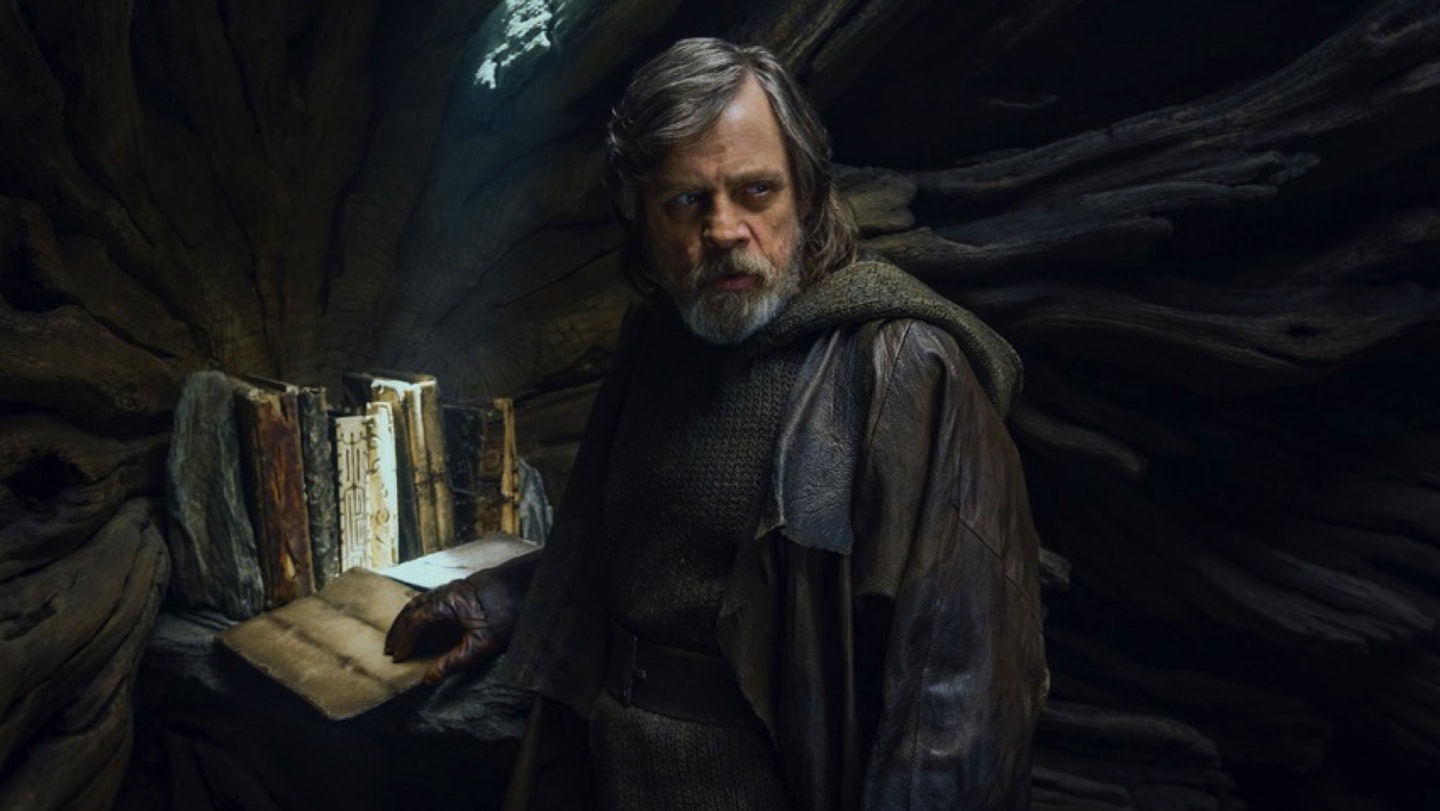
The likes of Leia, Luke and Snoke all display incredible Force powers in the film. Johnson acknowledges that this was something he wanted to tackle.
"It was twofold," Johnson explains. "First of all, it's tough, because at this point between The Force Awakens and even the video games, the level of Force powers has slowly come up. I feel like we still offered a modicum of restraint, because we didn't have anyone pulling Star Destroyers out of the sky. And believe me, it came up when Luke came out on to the field, I was, like, 'should he wave his hand and all the walkers blow off like dust?' The things that are in there that are Force moments largely came out of the dramatic moments. But the Leia thing is an interesting example. It's something that Kathy kept bringing up, which I thought was interesting. She said, 'I've always been intrigued by what Luke says to Leia in Jedi in that she has the power inside her also, and why haven't we seen that?' And the idea behind Leia's big moment was that it was not incredibly powerful, because she's in space and that doesn't offer much resistance, it doesn't take much to pull her back in. But also, that it's instinctual. It's like when you hear parents that have a toddler trapped under a car, and they lift the car up with Hulk strength. The idea that it's not going to end today, that she's not finished yet."
10. Johnson had to resist being a fanboy around Adrian Edmondson
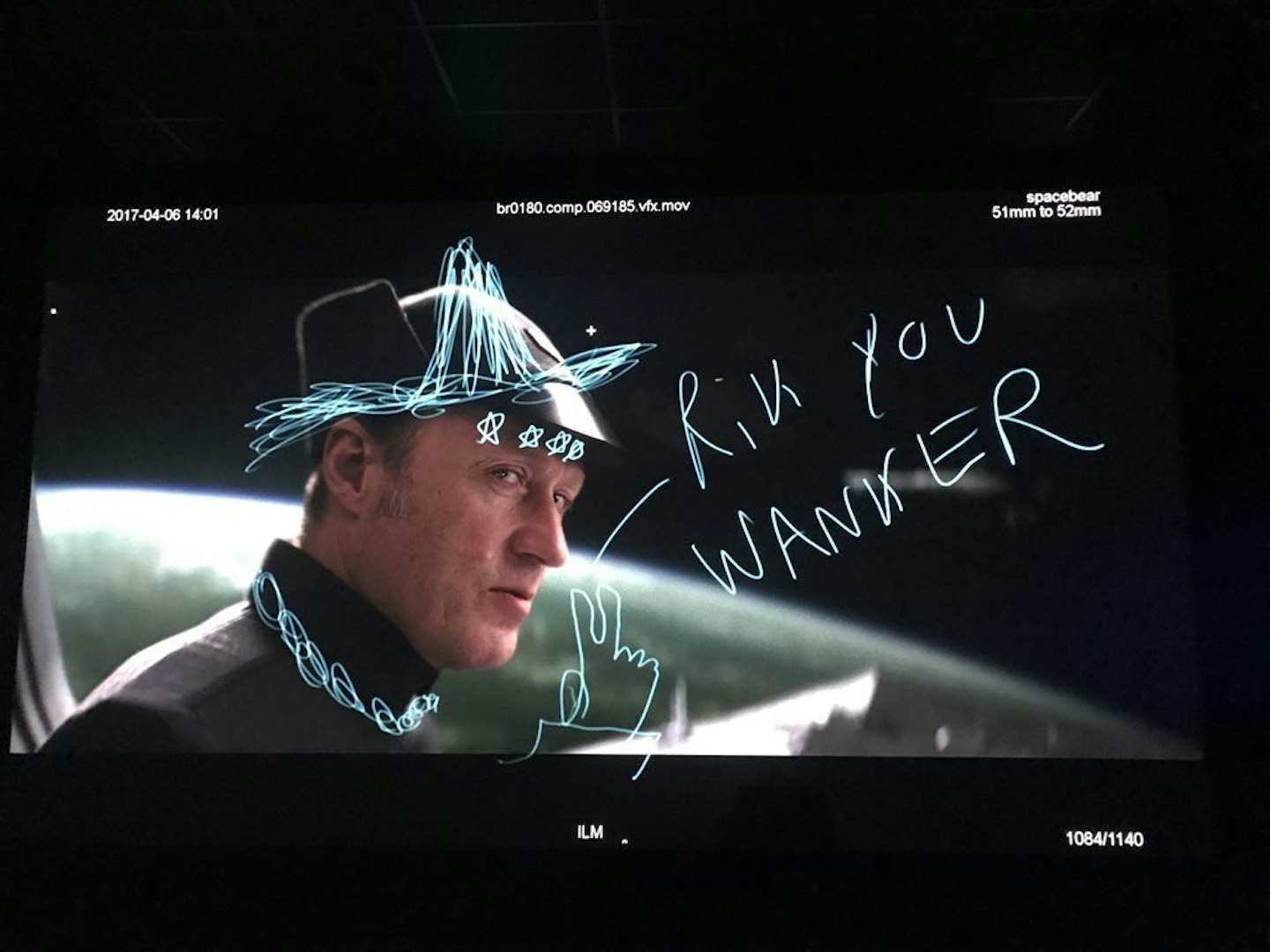
The comedy legend has a cameo as a First Order officer. So how exactly did Eddie Hitler end up joining the fray?
"I had been a huge fan of The Young Ones when I was in high school, and Bottom, I was an even bigger fan of. I thought it was the funniest thing in the world, and actually filmed the opening scene of the Bottom pilot for a student film. When I was out of film school, I shot a 16mmm version of it with my friends," admits Johnson. "The whole time he was on set, I was just trying to play it cool." Edmondson brought his own energy to the movie. "If you just keep your eyes on him during any scene he's in, it's an entirely different movie, because he's always doing some kind of eye roll..."
